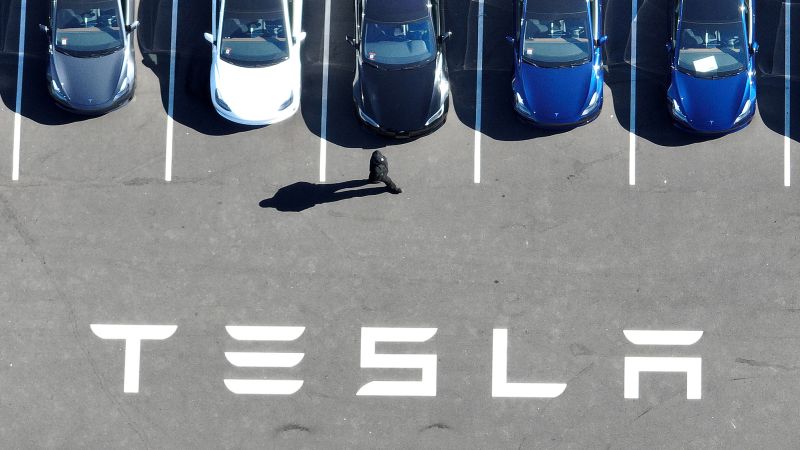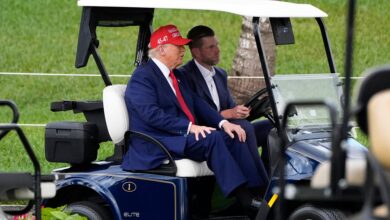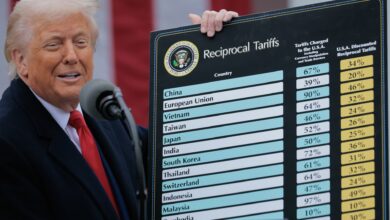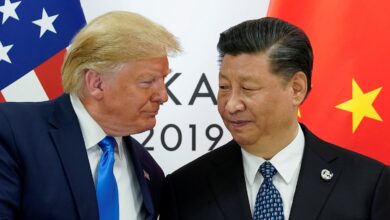Elon Musk didn’t want EV tax credits. Now Tesla is warming up to them

Washington, DC
CNN
—
Tesla buyers may be able to take advantage of new federal tax credits for electric vehicles next year, the automaker’s executives said Wednesday. The credits can be as large as $7,500 for new vehicles and $4,000 for used vehicles.
Tesla’s eligibility for the previous tax credits ended in Jan. 2020 when it hit the 200,000 limit on vehicles sold per automaker. The 200,000-vehicle cap lifts on January 1 with the new rules, but the new requirements are more stringent than the previous system. Tesla is waiting for the US Treasury to publish detailed guidance by the end of the year.
The legislation is open to some interpretation about how the government will calculate the value of the battery components, but a significant share of components must be manufactured or assembled in North America, to qualify for half of the $7,500 credit. The other half depends on critical minerals being extracted or processed in the United States or a country it has a free trade agreement with. The percentages will gradually increase from 2024-2029.
“Until such time it’s difficult to fully determine the eligibility criteria but we believe Tesla is very well positioned to capture a significant share of that for solar storage and also electric vehicles,” an unidentified Tesla representative said on an earnings call with investors Wednesday. (Tesla often does not identify people who speak on behalf of the company on its investor calls.)
The remarks represent a reversal of sorts for the car maker, as Tesla CEO Elon Musk had spoken out against proposed electric vehicle tax credits in the last year.
“We don’t need the $7,500 tax credit. I would say, honestly, I would say I would just can this whole bill. Don’t pass it,” Musk said in Dec. 2021 about the infrastructure bill, citing concerns about the growing US deficit.
And when an early proposal to extend the EV tax credit included extra money for vehicles built by union labor, Musk was critical again.
“Not obvious how this serves American taxpayers,” Musk said. “This is written by Ford/UAW lobbyists, as they make their electric car in Mexico.”

Musk has had a contentious relationship with the Biden administration, and chafed at the White House’s highlighting of its competitors’ electric vehicle efforts rather than its own. As recently as earlier this month, Musk told Republican Sen. Lindsey Graham that “we didn’t ask for this one,” referring to the tax credit included in the Inflation Reduction Act, “GM & Ford did.”
But Tesla and its executives were more receptive of the tax credits Wednesday.
“We view the passing of the Inflation Reduction Act as a significant boost towards accelerating our mission while also scaling the battery supply chain at large in the United States,” said an unidentified Tesla executive on the call.
Tesla allows the public to vote on questions its executives should answer. The most highly voted question asked about Tesla’s ability to meet thresholds for the electric vehicle tax credits in 2023, 2024 and 2025.
Tesla did not address specific years, but Musk said that “at a high level I’ll say we do expect to fully meet the IRA’s requirements.”
Another Tesla representative noted on the call that it manufactures its battery modules and vehicles in the US, which will aid it in qualifying.
Half of Tesla’s vehicle lineup will be by default ineligible without massive price drops. The Tesla Model X SUV and Tesla Model S sedan appear unlikely to qualify, as SUVs must not cost more than $80,000 and sedans must not surpass $55,000. The most affordable Model X is $120,990, and the cheapest Model S costs $104,990.
Some versions of the Model 3 sedan and Model Y SUV may be eligible, but buyers will still have to meet the income requirements. A single buyer’s income must not exceed $150,000, $225,000 if the head of a household or $300,000 if married.





